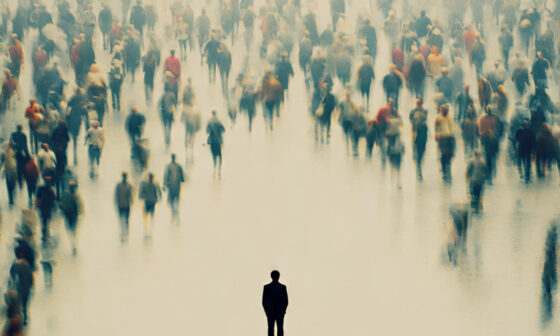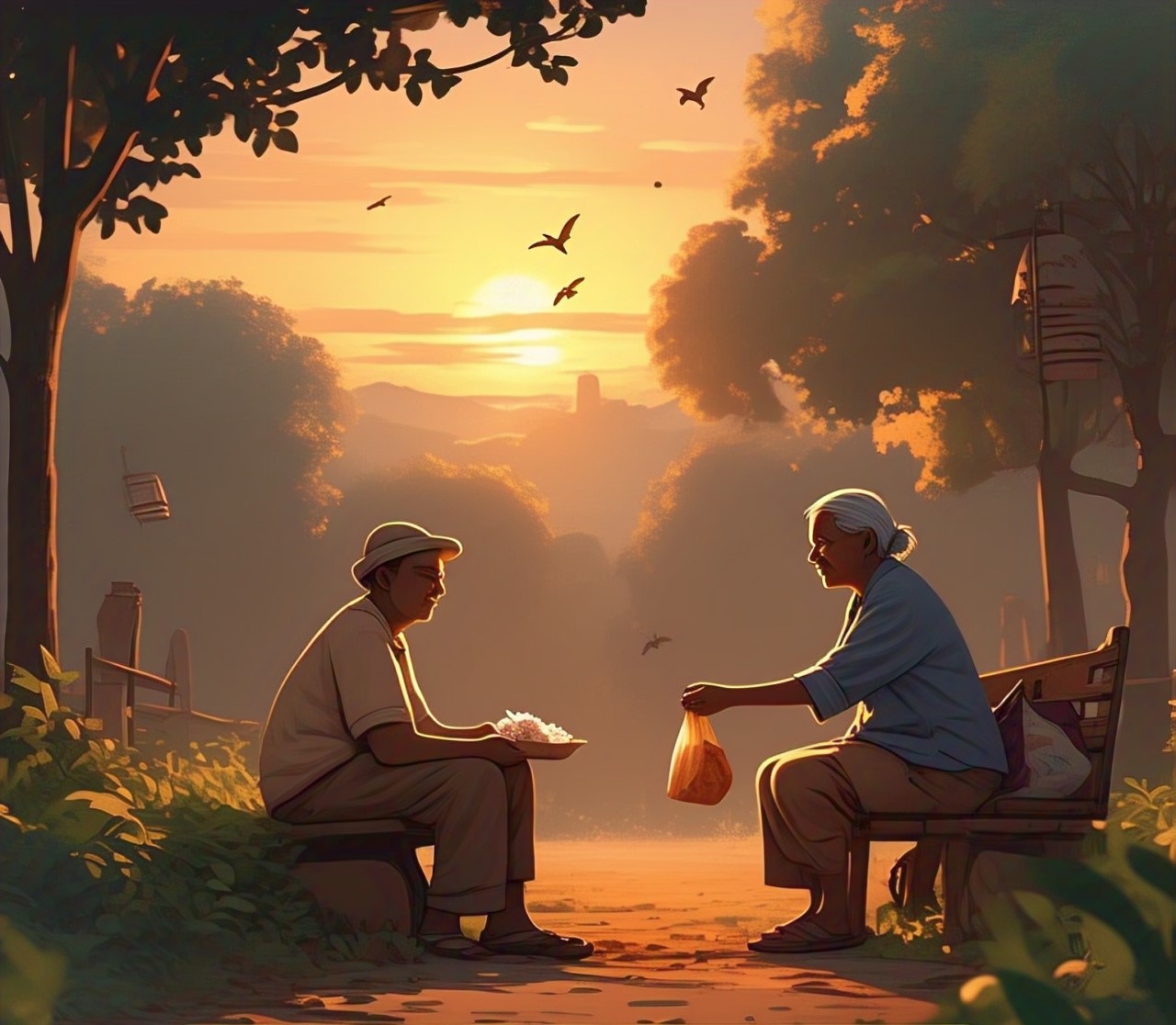We all have experienced sadness or a loss of interest or enjoyment in our daily lives; if they continue and impact our lives significantly, it could be depression. It can affect children, adolescents, and adults.
What is Depression?
Depression is a mood disorder that causes sadness and loss of interest. It is also known as major depressive disorder (or clinical depression). It affects your mood, thoughts, and behavior and can cause a range of emotional and physical issues. It can make it difficult to do your daily activities and may even cause you to feel like life isn’t worth living.
Depression can become more severe and last longer if not treated. It can cause self-harm and death in extreme cases.
Depression is a chronic problem; depression can last several weeks, months, or even years.

Depression is Different from Sadness or Grief
A person can experience difficult times such as the death of a loved one, the loss of a job, or the end of a relationship. In these situations, it is common to feel sadness or grief.
Both grief and depression can cause extreme sadness and withdrawal from your usual activities. Both are different.
- Self-esteem is often maintained in grief. Major depression can lead to feelings of worthlessness, self-loathing, and even suicide.
- Thoughts of death can surface in grief. Major depression can lead to thoughts of ending one’s own life because one feel worthless, unworthy of living, or unable to deal with the pain.
Sometimes grief and depression can co-exist. For some, losing a loved one, losing a job, or being the victim of an assault or major disaster can lead to depression. The grief that occurs when grief and depression co-exist is more severe than the grief that does not include depression.
It is important to distinguish between grief and depression; this can help people get the support, treatment, or help they need.
What is the prevalence (rate) of Depression?
Depression is a common condition in the world. According to healthcare providers, nearly 7% of Americans suffer from depression each year. Around 1 in 6 Americans will experience depression during their lifetime, which is more than 16%.
What causes Depression?
Various factors can cause depression:
- Brain Chemistry: Depression may be caused by abnormal brain chemical levels.
- Genetics If you are related to someone who is depressed, you might be more inclined to get depressed.
- Life events: Stress and trauma, isolation, and lack of support can all lead to depression.
- Psychiatric conditions: Chronic pain or illness can lead to depression. Depression is often accompanied by conditions such as diabetes, cancer, and Parkinson’s disease.
- Side effects of medication: Some medications can cause depression. Alcohol and recreational drugs can also lead to depression.
- Personality: People who have difficulty coping or are easily overwhelmed may be at risk for depression.
Signs and Symptoms of Depression
Although depression can occur once in a lifetime, many people experience multiple episodes. These episodes can be present almost every day.
- Feelings sad, depressed, tearful, empty, or hopeless.
- Anger outbursts, frustration or irritability, even about small things.
- A loss of interest in or enjoyment in any or all normal activities (sex, hobbies, or sports).
- Sleep disturbances include insomnia and excessive sleeping.
- You may feel tired and depleted of energy; this makes it more challenging to complete small tasks.
- Increased food cravings and appetite, weight loss, weight gain, or decreased appetite.
- Anxiety, agitation, or restlessness
- Slow thinking, speaking, or body movements

- Feelings devalued or guilt, fixating upon past failures or self-blame
- Problems with thinking, concentration, decision making, and memory
- Suicidal thoughts and suicide attempts are frequent or recurring thoughts.
- Unexplained physical issues, such as headaches or back pain, can be challenging to explain.
Depression symptoms can cause significant problems in daily activities such as school, work, and relationships. Sometimes people feel miserable, but they don’t know why.
Read More: Overcoming Pornography Addiction
Read More: What is Self Love and to Practice it?
Read More: The Importance of Personal Development and Self-Improvement
Depression symptoms for children and teens
While the signs and symptoms of depression in teenagers and children are similar to those experienced by adults, there may be some differences.
- Depression symptoms in younger children may include sadness and irritability.
- Teens may experience sadness, irritability, and feeling worthless. They might also feel depressed, anxious, or have difficulty understanding others.
Depression symptoms for older adults
Depression is not something that should be considered a normal part of aging. Depression is often not diagnosed and treated in older adults, leading to reluctance to seek treatment. Older adults may experience symptoms of depression that are less apparent or more subtle.
- Memory problems or personality changes
- Aches and pains in the body
- A medical condition, medication, or a physical condition, can cause fatigue, loss of appetite, sleep problems, or loss of interest in sex.
- Many people prefer to stay home and not socialize or do new things.
- Suicidal thoughts or feelings, particularly in older men
Complications of Depression
Depression can be a very serious condition that can cause severe mental and emotional problems for you and your loved ones. If depression is not treated, it can worsen things; this can lead to mental, emotional, and behavioral issues that will affect every aspect of your life.
Some of the complications that depression can cause include:
- Obesity and excess weight can cause heart disease and diabetes.
- Pain or other physical illness
- Use of alcohol or drugs
- Social phobia, anxiety disorder, panic disorder, and anxiety
- Family conflict, relationships difficulties, and problems at work or school are all possible.
- Social isolation.
- Suicidal thoughts and attempts.
- Self-mutilation such as cutting.
Treatment and Management of Depression
Depression can be very serious, but it is also manageable. Treatment for depression includes:
- Self-help: Exercise, enough sleep, and time spent with loved ones can all help reduce depression symptoms.
- Counseling: Talking to a mental health professional. Counselors can help you to address your problems and learn coping skills. Sometimes, you only need a short therapy session. Others may continue therapy for more extended periods.
- Supplemental therapy: For people with mild depression and ongoing symptoms, complementary therapy can help improve their well-being. Massage, acupuncture are some of the options for therapy.
- Medication: Prescription medicine known as antidepressants can be used to treat depression. Side effects can sometimes improve over time with some antidepressants; talk to your doctor if they do to take different medications.
- Brain stimulation therapy: brain stimulation therapy can be used to help those with severe depression.
Prevention of Depression
There is no way in particular to stop depression. These strategies might help.
- To increase your resilience, and improve your self-esteem, take steps to manage stress.
- Share your feelings with family and friends, especially during times of crisis, to get through tough times.
- Stop depression from getting worse by seeking treatment as soon as you notice a problem.
- To prevent a relapse, consider long-term maintenance.
Conclusion
Millions of people are affected by depression every year. Depression can be caused by various factors, including life difficulties, brain chemistry abnormalities, and certain medications. Depression can be treated; alert your doctor if you are experiencing depression symptoms. You can feel better the faster you seek help.





